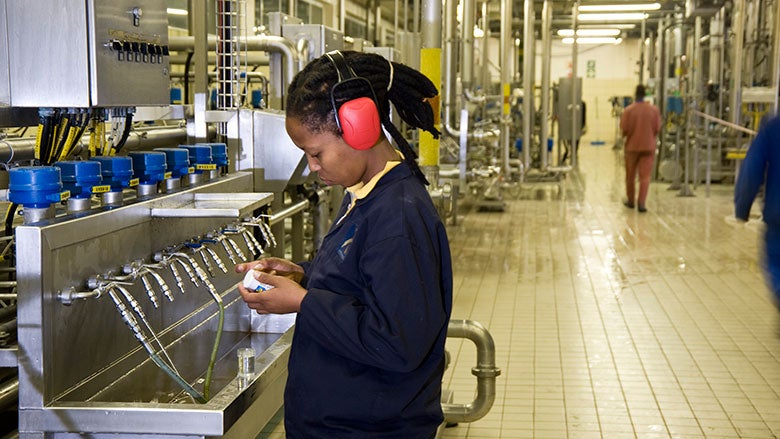
Growth is picking up in South Africa, and this is good news after two years of declining incomes per capita. Observers are revising their forecasts, and optimists foresee economic growth to exceed 2% in next years. In recent months, several events have indeed improved South Africa’s economic outlook: the smooth transition in power, the authorities’ reaffirmed adherence to principles of good governance and debt stability, and the upward revision in national accounts, revealing higher economic activity in 2017 than previously measured.
But will this make a difference to people’s life? Not really, according to the World Bank 11th edition of the South Africa Economic Update. Why is this? First, because higher economic growth will be accompanied with higher taxation, which is needed to stabilize the public debt and avoid strong macroeconomic turbulences down the road. Secondly, because a bit more of the same growth will not reduce inequality. In fact, it may actually increase it, through higher skills premia in South Africa’s skills-constrained economy. This would keep South Africa’s society in a delicate situation, whereas its high polarization fuels resource contestation, and eventually deter the investments needed for innovation and jobs creation.
The South African economy demands skills that most people lack. The mismatch between labor supply and demand creates a shortage of skills, prevents growth and increasingly creates inequality. Between 1996 and 2015 for example, wage inequality grew with this mismatch, and income inequality in consequence, as other sources of income and public grants to most vulnerable could not offset this trend.
Breaking away from this cycle of high inequality and slow job creation lies in equipping poor with the skills they lack. This will allow much greater participation of the population to the economy, and may reduce the policy uncertainty that results from high inequality and resource contestation.
Interestingly, education progress achieved in the last decade, even if starting from a low base, is likely to pay off, in terms of eventually redistributing skilled labor incomes between poor and non-poor. Even with low projected growth, the World Bank projects a decline in inequality by 2030. By that time, inequality would come back to their level of 1996. This is good news, but would still most likely keep South Africa in the group of most unequal countries in the world.
This reduction of inequality can be significantly accelerated, through improved quality in basic education, financial support to accessing university targeted to poor students and greater spatial integration between townships and jobs centers. And financing such interventions will require higher growth, which can be stimulated through higher competition and increased skills migration in the short term. Under this scenario, the World Bank conservatively projects that the induced reduction in inequalities would almost eliminate extreme poverty by 2030. By that time, South Africa could count only four million poor of out a population of 65 million in 2030, down from 10 million poor out of a population of 57 million today.
Authorities’ intention to revamp the social compact between business, labor and civil society will be critical in this regard. While reforms can significantly reduce inequality, they will not eliminate all problems, and this will take time. By 2030, unemployment will remain high, as will chronic poverty. It calls for continued support to most vulnerable, and efforts to redistribute wealth while protecting property rights. This will contribute to eventually overcome the legacy of exclusion, and align gained political rights with equal economic opportunities.


Join the Conversation